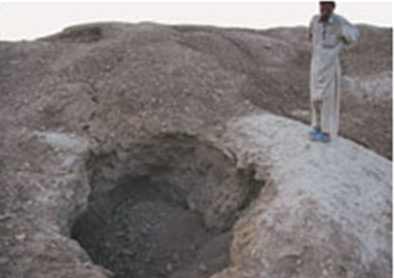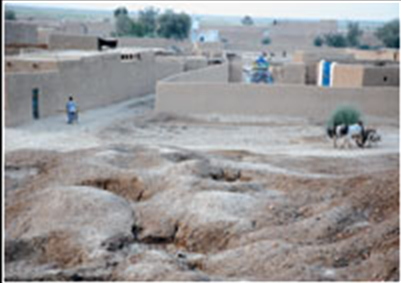Balochistan: Ancient artefacts
This is a collection of articles archived for the excellence of their content. Readers will be able to edit existing articles and post new articles directly |
Baluchistan: Looting ancient treasures
Text and photos by Ameer Hamza
The province of Baluchistan is a strange mix of poverty, desolation and plunder and this is visible the moment you step on its ancient soil. You can see it in the Baluch, a veritable ancient man, the inhabitant of this wonderful yet enigmatic place. It’s visible in its trees, some of which have grown for over 4000 years ago, the time when ancient man was building his little toys, painting his pottery red and black, and calling Baluchistan his home. When, if that sounds ironic today, Baluchistan was probably one of the greatest powers on Earth, its technology, the finest of its time.
It is exactly this idea of supremacy which forces me to travel to generally unexplored parts of the province to see what is happening on the excavation front. I was terribly disappointed when I found out that Mehrgarh, arguably one of the grandest and oldest civilisations, has been partially razed to the ground under instruction of a certain government minister. This particular site predates our famous Indus Valley civilization and is being excavated since the last 30 years by a husband-wife French team.
Armed with this incredibly disheartening knowledge, I turned my attention to another pre-Indus site. Chilgari is some 45 minutes drive from Bhag town in Khachi district of Baluchistan. I was deeply saddened to see that like Mehrgarh, Chilgari too has been neglected and looting and plundering continues unabated.
A local man named Lateef told me that people have been digging the site for some time now but I was not prepared for what I later saw. As sun rose above the dust-propelled landscape, my motorcycle came to a halt on a high platform that obviously was not part of the natural landscape which was completely flat. The raised platform, as it turned out, was an entire settlement, a mound, as archaeologists like to call it.
I met a man who is supposedly in charge of the place. He is called Faqir by the others and himself and is here on appointment by a local vadera who does not like people excavating the site. One cannot be sure if the place belongs to this vadera or not. Nevertheless, the locals have been digging deep holes in the site ever since they got to know that the ‘devil’, who once lived here, has simply vanished. One dealer even told me that they are surprised by the amount of interest shown for the artefacts being excavated from the site and conceded that a man from Quetta buys them all from him directly. The items that have been recovered and have been put up for sale include cows, always venerated, small yellow pots which were probably used for keeping ancient medicines, large pots in various shapes and sizes some of which are beautifully decorated.
Learning of this, I was surprised, horrified, and appalled. How come the government has done nothing to stop this, I inquired of the locals. I am told that some government officials did come; they did a survey, and left and no one heard from them again after which the plundering began. The same thing has been happening with Buddhist sites all over Pakistan and Afghanistan; Baluchistan has come into fashion just recently with knowledge about pre-Indus sites gaining currency among antique collector.
In order to make a case with the local department of excavations, I bought a few artefacts. I continue to hope that something will be done to prevent the looting of Chilgari and the wealthy heritage of Baluchistan will be preserved for the future generations

